5 worst deals from the start of NFL free agency
Free agency's first wave has crashed into the NFL, and green is flying everywhere.
Teams around the league wasted little time handing out hundreds of millions of dollars to capture the top players on the open market. But as history tells us, there are likely to be just as many busts as success stories when players are handed such lucrative contracts.
Here are the five most perplexing deals from the first three days of free agency.
LB C.J. Mosley ➡️ New York Jets
5 years, $85M ($51M guaranteed)
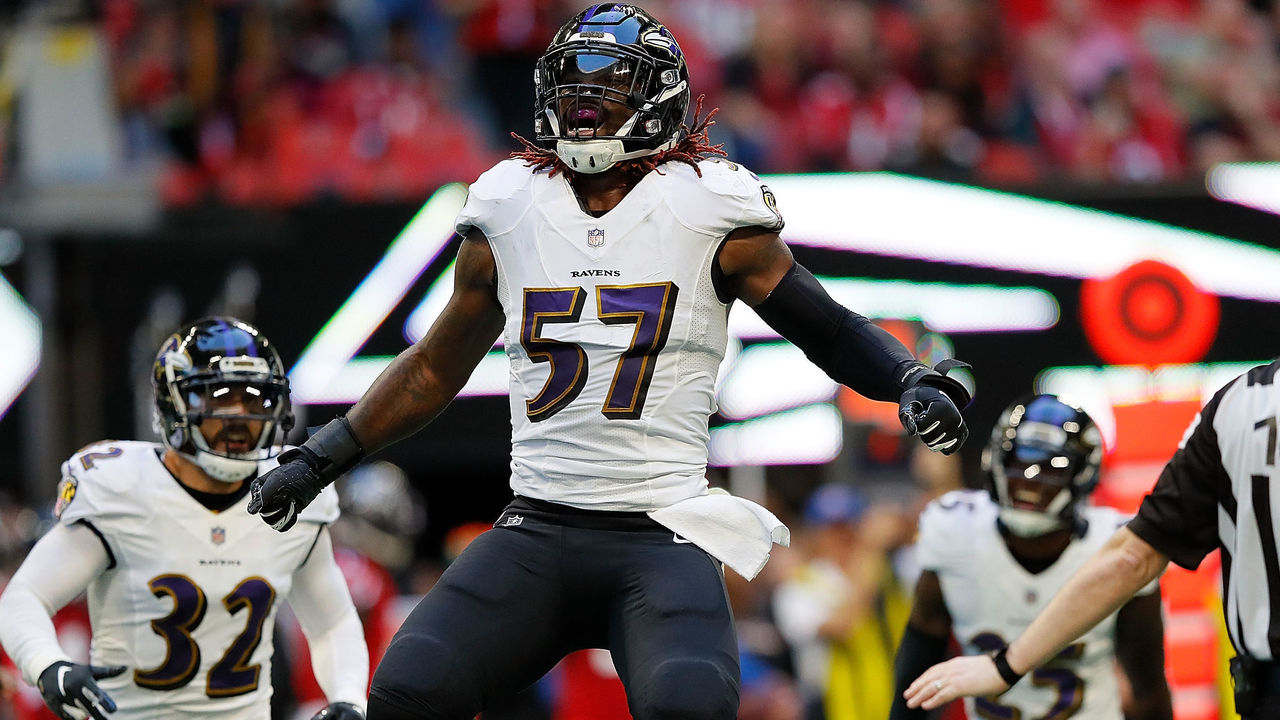
The Jets blew the ceiling off the inside linebacker market with their deal for Mosley. A day after the San Francisco 49ers raised eyebrows by making Kwon Alexander the best-paid inside linebacker with a deal that averages $13.5 million, New York said, "hold my beer" and handed over $17 million annually and $51 million in guarantees to the former Baltimore Ravens standout.
Luke Kuechly and Bobby Wagner, widely considered the cream of the position, earn a now relatively modest $12.36 million and $10.75 million per year, respectively. Mosley's average salary is so enormous compared to his compatriots that he's actually more in line with the NFL's elite pass-rushers; all eight of the defenders who earn more than the former first-rounder recorded double-digit sacks last season, while Mosley notched just 1.5 takedowns over the last three years.
The linebacker is an elite run defender, but in addition to his nonexistent pass-rushing abilities, he lacks the cover skills that have become the more sought-after talent for inside linebackers in recent years. The Jets weren't even in dire need of an upgrade after a solid 2018 from Avery Williamson and Darron Lee.
Mosley's a four-time Pro Bowler for a reason, but it's highly unlikely he'll have the kind of impact that would make such an investment worthwhile.
WR Golden Tate ➡️ New York Giants
4 years, $37M ($23.5M guaranteed)
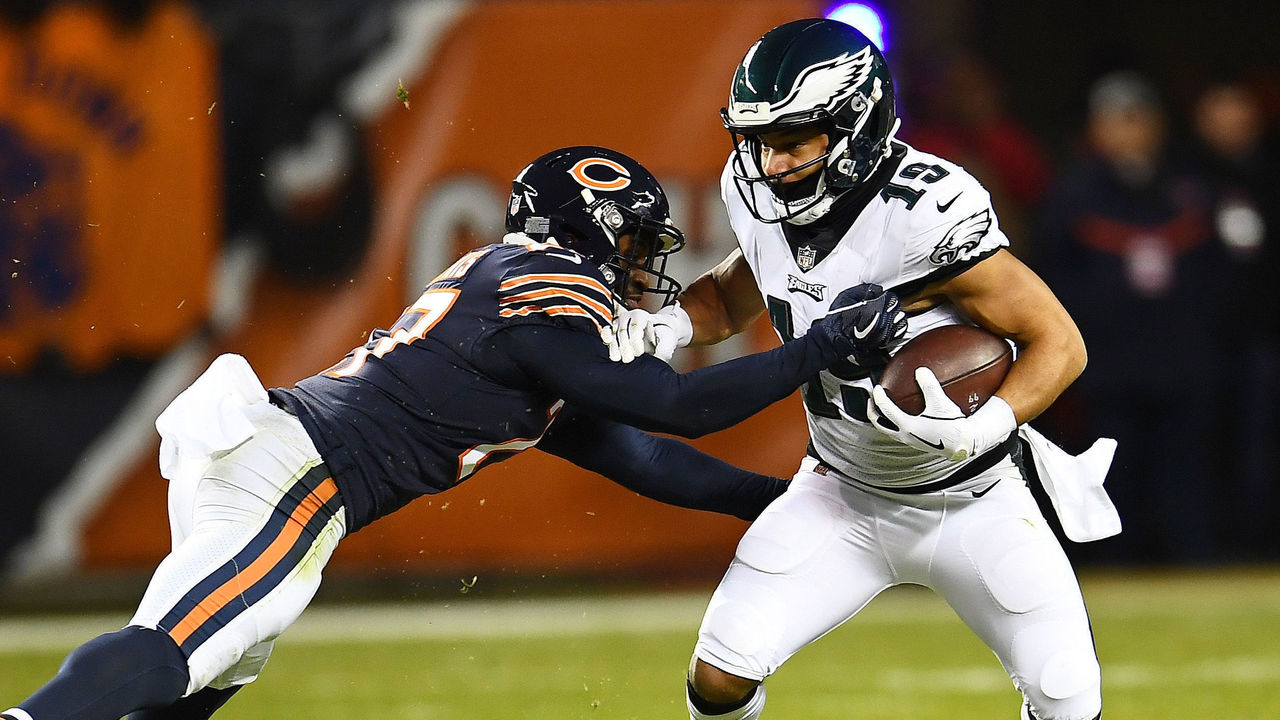
"We do have a plan," Giants general manager Dave Gettleman said Wednesday after trading Odell Beckham Jr. to the Cleveland Browns for what was widely considered pennies on the dollar.
But is the plan to rebuild from the ground up or try to win in Eli Manning's final stretch? Trading away OBJ and Olivier Vernon and allowing Landon Collins to walk indicates the former. Still, retaining their 38-year-old quarterback and his $23.2-million cap hit (New York would save $17 million by releasing Manning) a year after taking a running back at No. 2 overall instead of a quarterback makes it appear like the Giants are trying to have their cake and eat it too. It's a tactic that often leaves teams stuck in no man's land.
Tate will turn 31 in August but received more guaranteed money than all but 11 other free agents, and nine of those are between 25 and 27 years old. While a contender could've justified spending the guaranteed money that likely locks in an aging player for two or three seasons, it's the exact type of bloated, unnecessary contract that hinders rebuilding franchises. It's already cost the Giants, as Tate's deal cancels out the fifth-round compensatory pick they'd have gained by losing Jamon Brown to the Atlanta Falcons, not to mention that the NFC East rival Eagles will gain one of their own because of it.
The signing makes about as much sense on the field as it does financially. As one of the league's top slot receivers, Tate would fit with most teams. But the Giants' Sterling Shepard, who's set to earn just $1.9 million in 2019, has the third-most yards from the slot since 2016. One of the two will be forced outside, where they'll likely struggle to replicate past production. Seriously, Dave, what is the plan?
QB Nick Foles ➡️ Jacksonville Jaguars
4 years, $88M ($50.13M guaranteed)
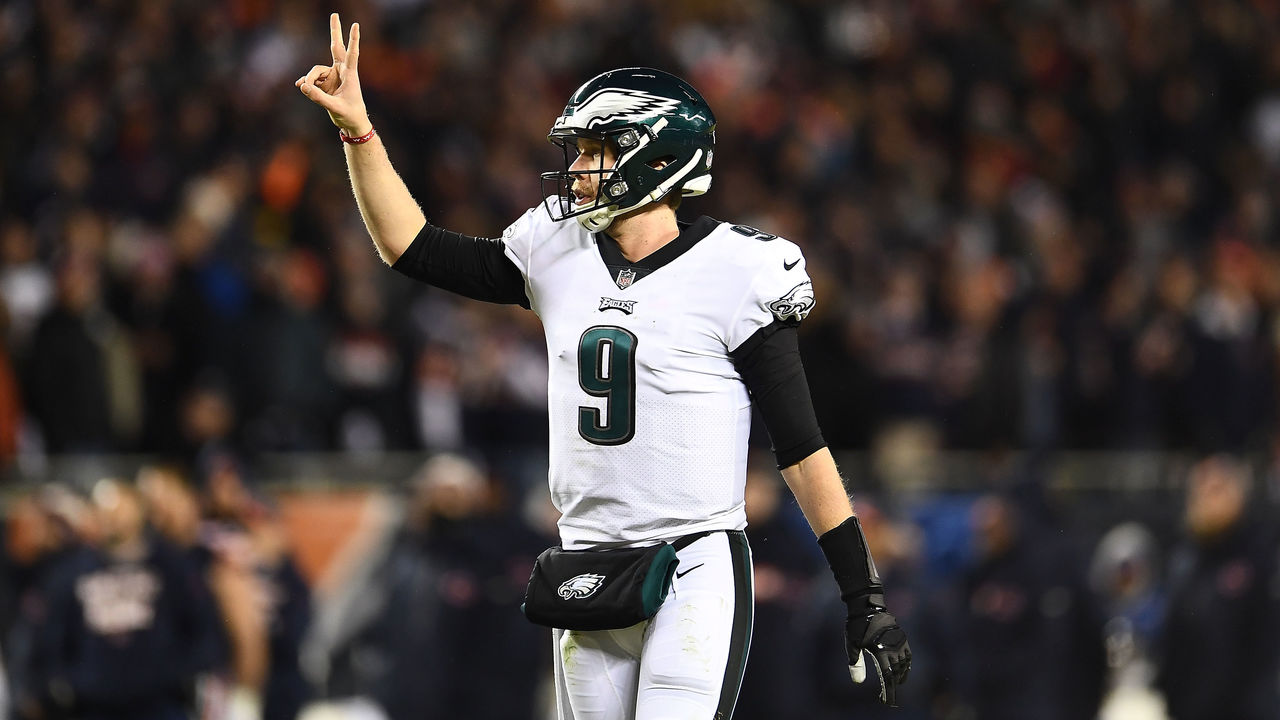
Foles earned almost mythical status - and easily the NFL's best nickname - during his magical second stint with the Philadelphia Eagles. But the Jaguars paid for the hype rather than the average quarterback, at best, he's proven himself to be outside of one dream Super Bowl run.
The veteran's average salary of $22 million ranks 11th among quarterbacks, ahead of the likes of Russell Wilson, Ben Roethlisberger, and Philip Rivers (all three are entering contract years). More importantly, the $50 million in guarantees locks Foles into the Jaguars' starting job for at least the next two years and likely stops the team from drafting a quarterback this year.
Even though Jacksonville appeared to be bidding against itself, it failed to leave itself with significant flexibility despite knowing from recent experience how a poor quarterback contract can drag down a franchise (the $16.5-million dead money hit from releasing Blake Bortles should've been a glaring reminder).
While Foles' postseason stats over the past two years are impressive, he ranks 20th in passer rating and 22nd in QBR during the regular season since 2012, according to ESPN, and he'll have a far inferior supporting cast in Jacksonville. Foles is definitely an upgrade over Bortles, but that isn't exactly a high hurdle to clear. The Jaguars overpaid for a player who'll likely end up a stopgap rather than the final piece of a championship puzzle.
LB Za'Darius Smith ➡️ Green Bay Packers
4 years, $66M ($20M signing bonus)
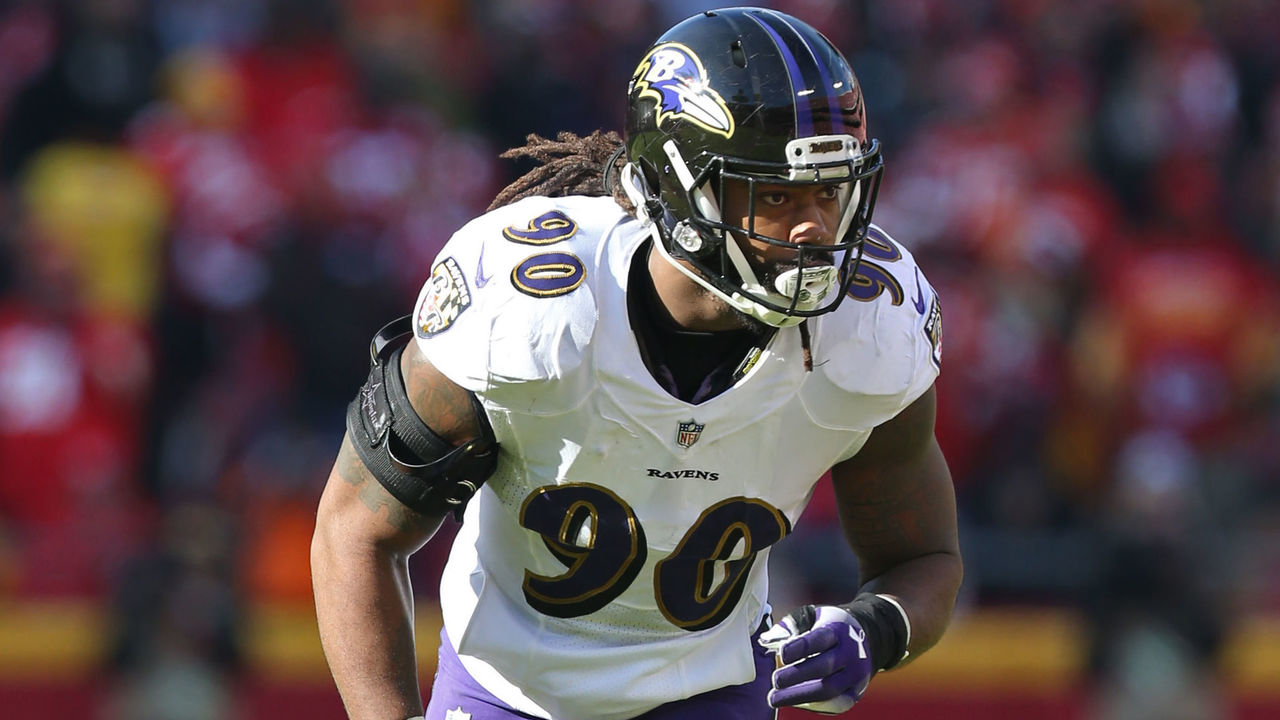
Second-year GM Brian Gutekunst finally gave the Packers fanbase the big-money additions it long coveted under Ted Thompson's frugal regime. Linebackers Za'Darius Smith and Preston Smith, as well as safety Adrian Amos, were signed to bolster a fledgling defense, while Billy Turner was added to the offensive line.
The two Smiths will replace the unproductive duo of Clay Matthews and Nick Perry, and there's little doubt they'll be an upgrade. Matthews and Perry combined for just five sacks in 2018 while the Smiths had 12.5; however, Za'Darius was a relative unknown before last year, and his 8.5 sacks were almost equal to his first three years of production (10). Preston is the more established player but actually received $14 million less from the Packers.
Green Bay was interested in Dee Ford, whom the San Francisco 49ers paid a hefty price to acquire by sending the Chiefs a 2020 second-rounder. Still, it would've been a better move for the Packers as they'd have secured a far more proven pass-rusher at a financial cost that was only marginally higher, as Ford immediately inked a deal worth just $1 million more per season than the ex-Raven.
Aaron Rodgers will turn 36 years old during the 2019 season and the Packers are clearly feeling the pressure to deliver a contender. But with two first-rounders in this year's draft, Green Bay might've been too hasty in its attempts to fix its pass-rush.
OT Bobby Hart ➡️ Cincinnati Bengals
3 years, $21M ($5.5M guaranteed)
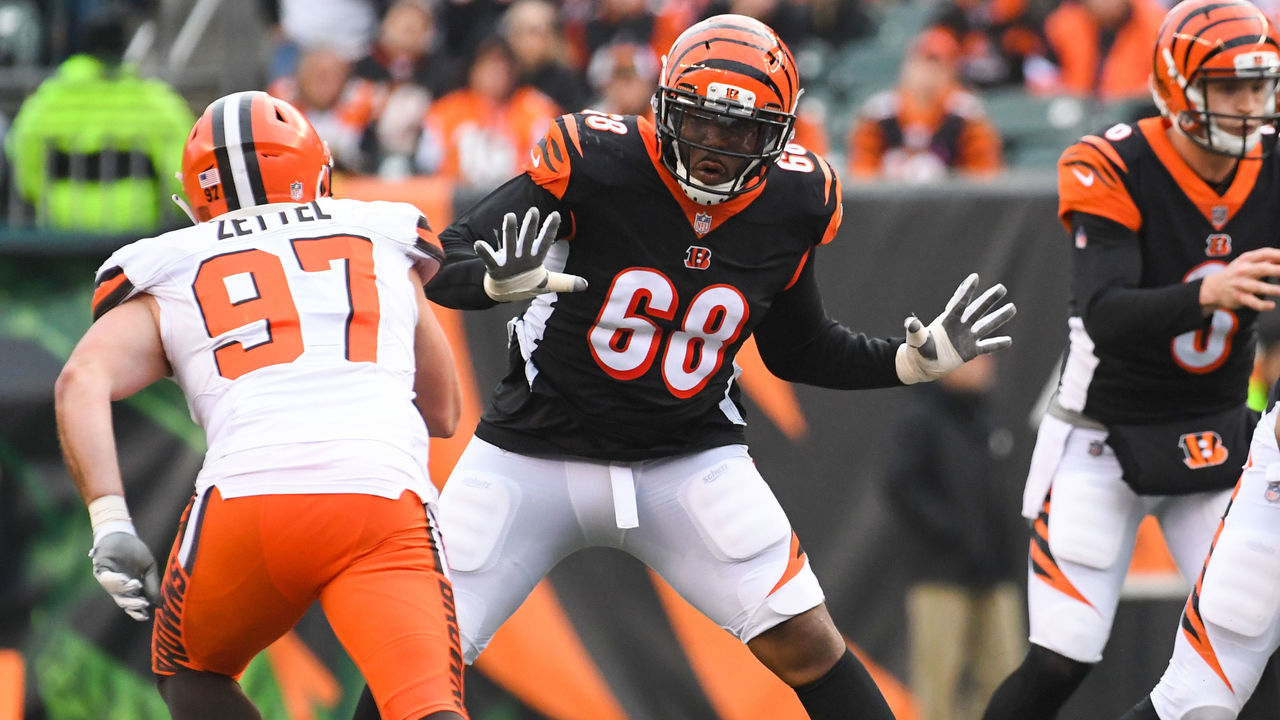
In free agency, you don't necessarily have to spend big money to make a big mistake. Case in point: The Bengals re-signing their right tackle to a three-year deal despite him being one of the worst offensive linemen in football last season.
A 16-game starter, Hart was one of just four offensive tackles who allowed 10 or more sacks, according to Pro Football Focus. When Hart wasn't letting pass-rushers blow past him, the former seventh-round pick of the New York Giants was a constant flag magnet. Only three players committed more penalties than Hart's 14, which included a mind-boggling nine false start calls.
Hart looked more like someone fighting to stay in the NFL than a player worthy of a contract that will put him inside the top 10 highest-paid right tackles if he hits incentives to increase the $16.15-million base value. The deal won't make or break Cincinnati's season, of course. But for a team short on optimism heading into 2019, rewarding poor players isn't the way to get the Bengals fanbase to believe the Zac Taylor era will be any different to the one that preceded it.
(Contract details courtesy: Spotrac)
HEADLINES
- Harbaugh: Relationship with Lamar 'A-plus' amid reported tension
- Watt returns to practice 2 weeks after lung surgery
- Raiders place Bowers on IR, ending tight end's season
- Tomlin, Rodgers sticking it to the haters with late-season surge
- NFL Christmas Day Prop Party: Lions' offense as gift that keeps on giving